Michigan State University honored and celebrated the legacies of local and national Latinx community leaders and organizers who fought for and secured change for farmworkers and Latinx communities on Monday, March 25, at its 14th annual César Chávez and Dolores Huerta Commemorative Celebration.
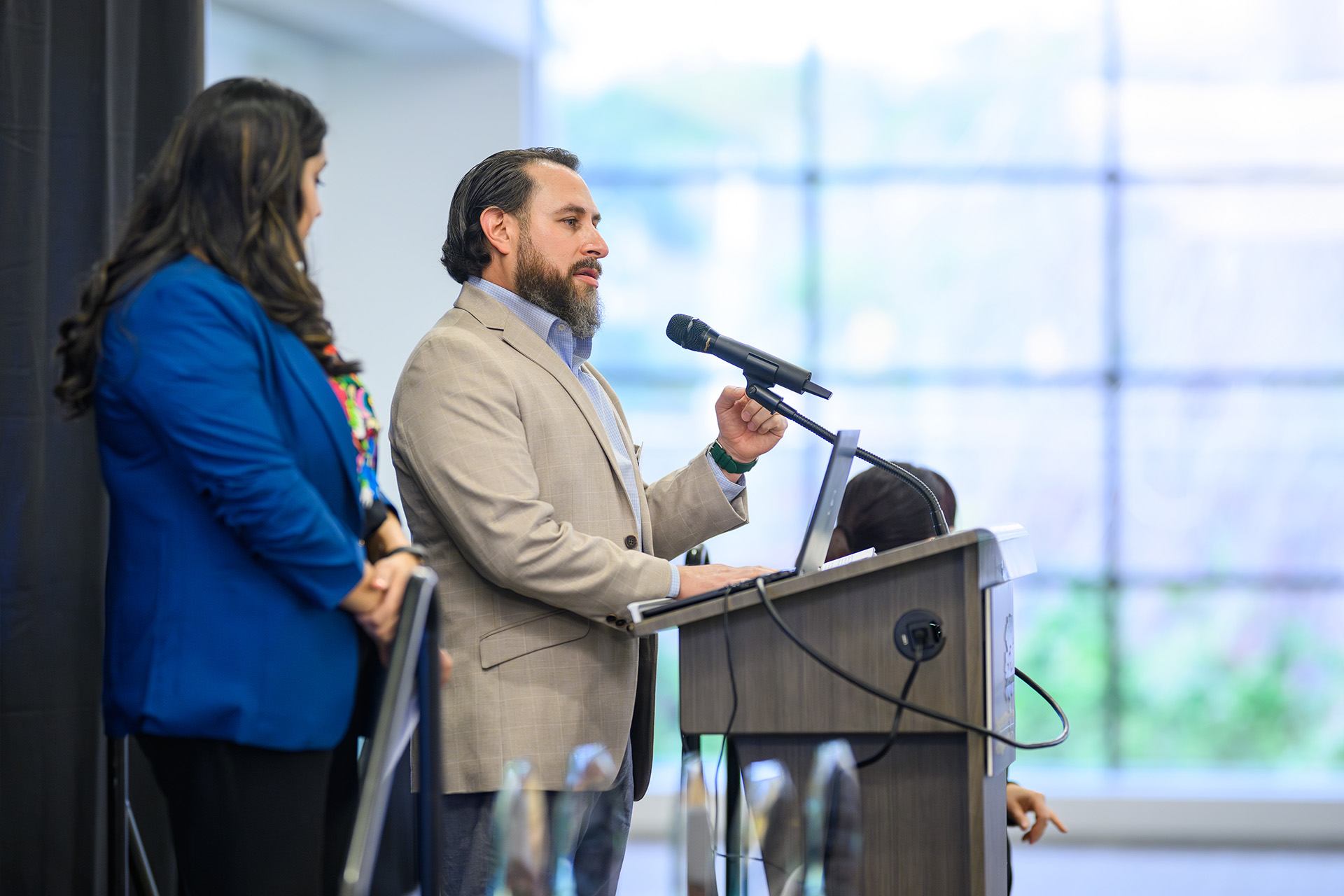
Community members from across campus, East Lansing and Greater Lansing gather at MSU every year to honor the legacies of Chávez and Huerta, who were both prominent labor leaders and civil rights activists. This year’s commemorative event theme, “Cosechando Nuestros Sueños: Harvesting Our Dreams,” was especially fitting, as the event falls during National Farmworker Awareness Week.
More than 250 people attended the event and the afternoon of workshop sessions, which recognized Latinx communities, migrant farmworkers and activists who persevered and fought through historic struggles to help improve working conditions and progress in workers’ rights and civil rights in America.
Mónica Ramírez, gender equity activist, civil rights attorney and co-founder of Alianza Nacional de Campesinas, or the National Farmworkers Women’s Alliance, served as the keynote speaker for the event. As the daughter and granddaughter of migrant farmworkers with a history of traveling across the nation to work and feed the people of this country, Ramírez knows all too well the struggles that her family and many others have and continue to experience.
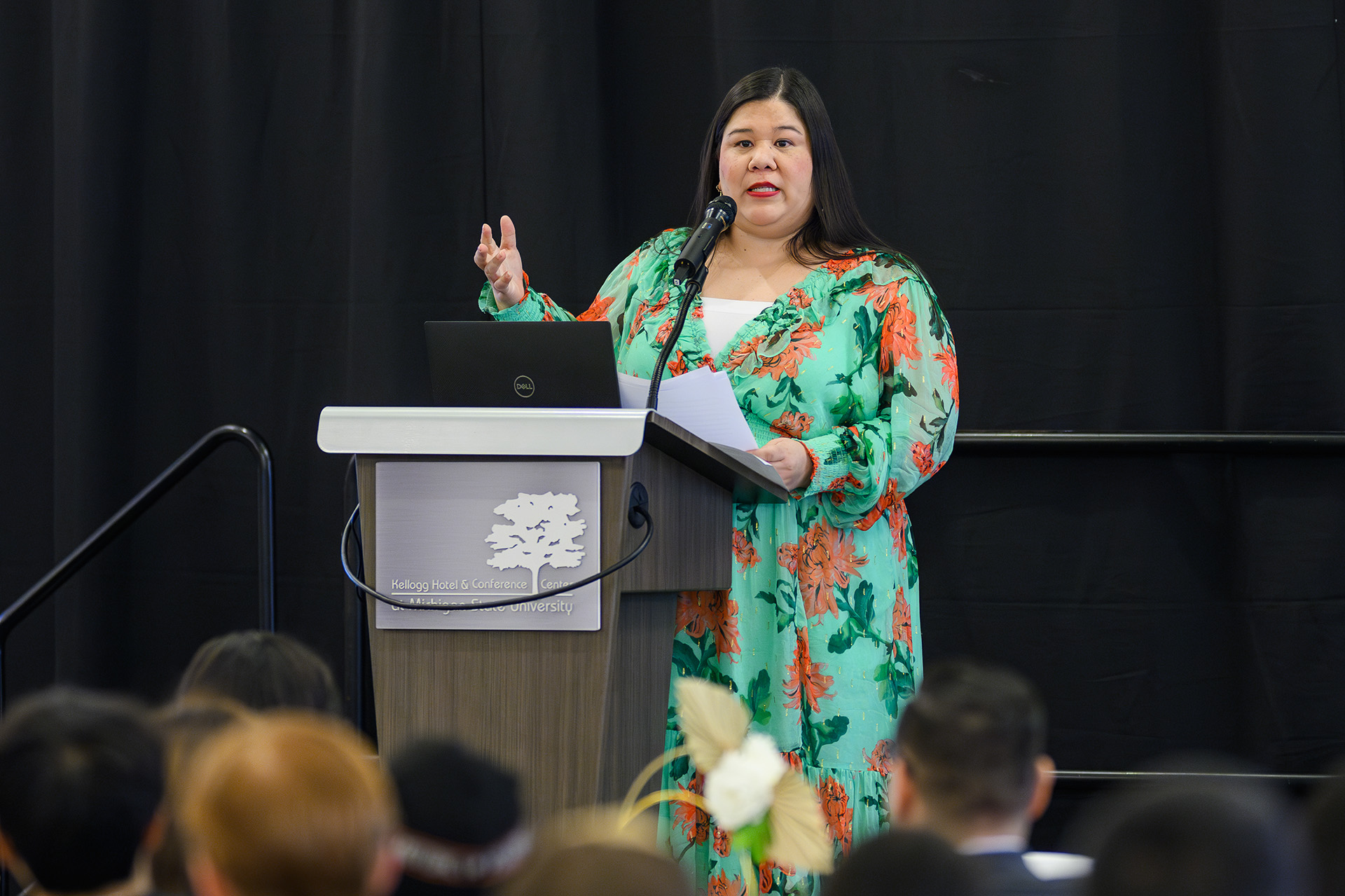
“This is a time for us to think about how far we have come while never forgetting how far we still have to go as a community,” Ramírez said. “For many of you in this room, you know that for the more than 2.5 million farmworkers who plant, pick and pack the fruits and vegetables that we all eat, the situation is still difficult. The pay is too low, the law is still unjust and fails to provide farmworkers the same rights and protections as other workers across our nation.”
While recognizing farmworkers and Latinx communities, the celebration also highlighted the struggles and injustices that these communities continue to face. Among those struggles is the widespread workplace sexual violence that farmworker women suffer.
One workshop session specifically focused on addressing this violence, emphasizing Ramírez’s work through The Bandana Project. Launched in 2007 by Ramírez and led by the nonprofit Justice for Migrant Women, The Bandana Project is an international art-activism project and advocacy campaign to raise awareness about the sexual violence farmworker women face in the workplace. Through the project, farmworker community members, advocates and others decorate white bandanas, host community events and trainings and display bandanas to support, fortify and empower farmworker women.
“Unfortunately, we know that there are still unscrupulous people who choose to take advantage of the farmworker community,” Ramírez said. “For the farmworker women who I come from and the farmworker women who I serve, we know that there are many unique challenges, like the different forms of gender discrimination that they face in the workplace. We also know that still too many of our children are at risk, surrounded by the harsh conditions that confront us in the fields and across these workplaces.”
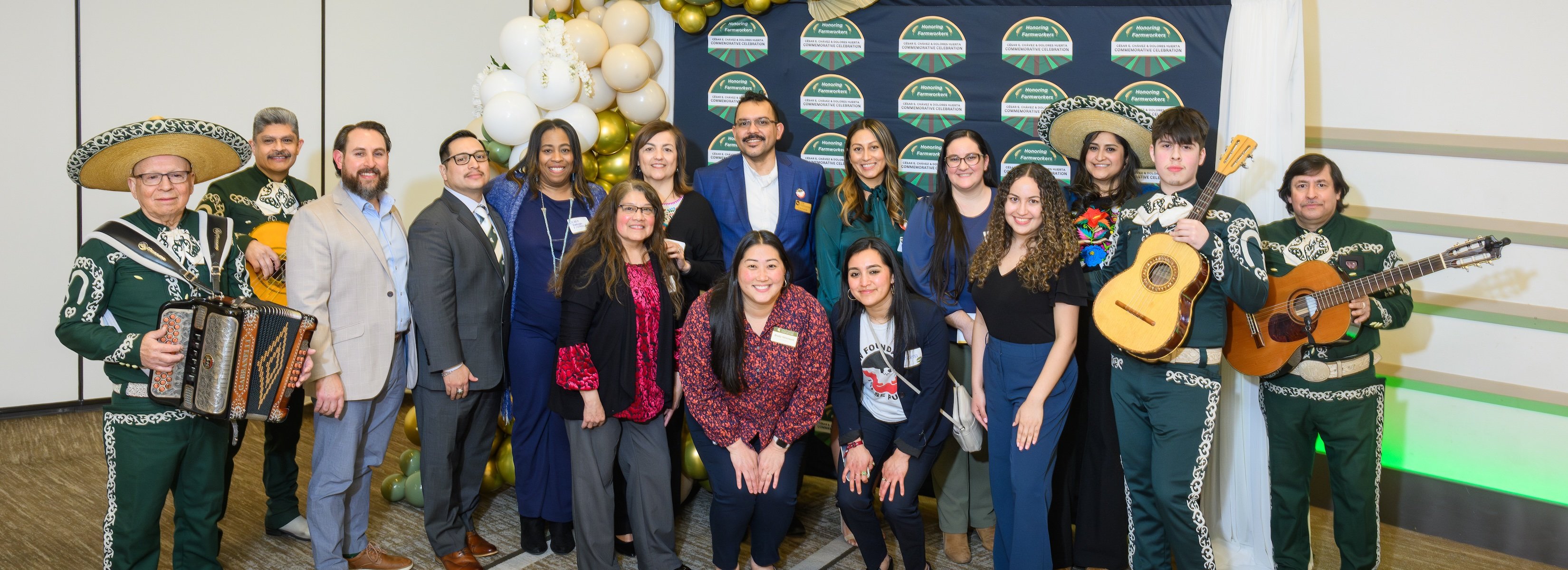
Additional workshops studied dream mapping; voting; caring for the mind, body and soul; and Chávez’s legacy. Chávez and Huerta fought for the rights of farmworkers and went on to start the National Farm Workers Association, which became the United Farm Workers of America. Since his passing, communities nationwide have named libraries, schools, streets and other public facilities in honor of Chávez.
“Our community has been typecast by this country. The story that people often tell about farmworkers and other low-pay workers in our country is a story of poverty, pain and powerlessness. But we know that that is not our community’s story,” Ramírez said. “We know what it feels like to have the weight of a cucumber bucket or a bell pepper bucket on our waists. We know what it feels like to have the heat glaring down on our backs. We know the great pride and satisfaction that one feels knowing the fruits of our labor, the fruits of our family’s labor, are the very fruits that nourish our nation and the world.”
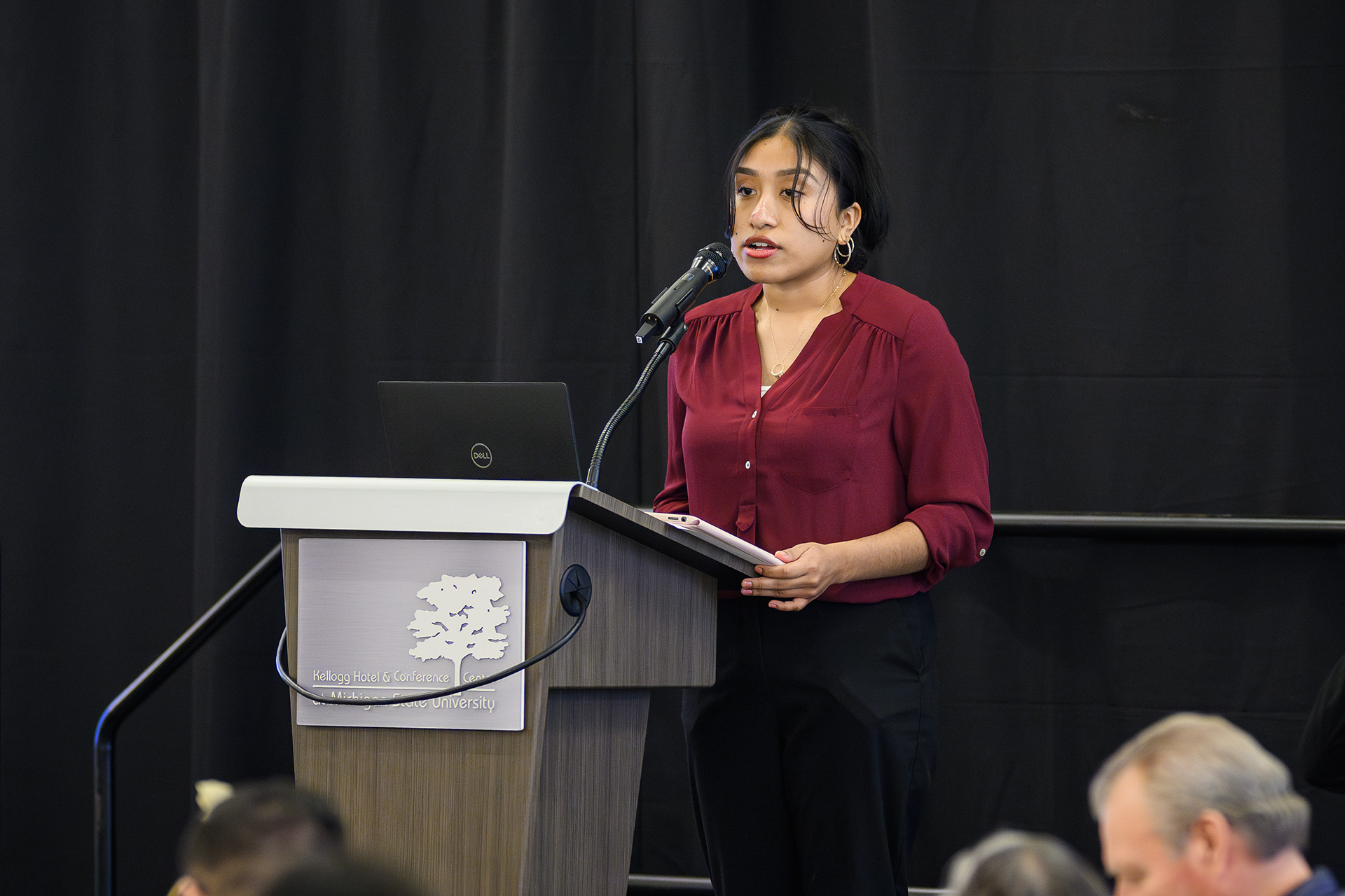
Several students who hail from farmworker families helped organize the event, and others were honored. All commemorated the hard work and resilience of farmworker families that have fed and continue to feed America.
“This celebration serves as a reminder that farmworkers deserve to be recognized every day, not only during Farmworker Awareness Week,” said Sofia Mireles-Gonzalez, an undergraduate student. “It has been an honor for me to serve in the CCDH planning committee and showcase my creative skills in all promotional materials because when I do my work, I see my community, I hear their voices and I take so much pride in doing the best work possible for them!”
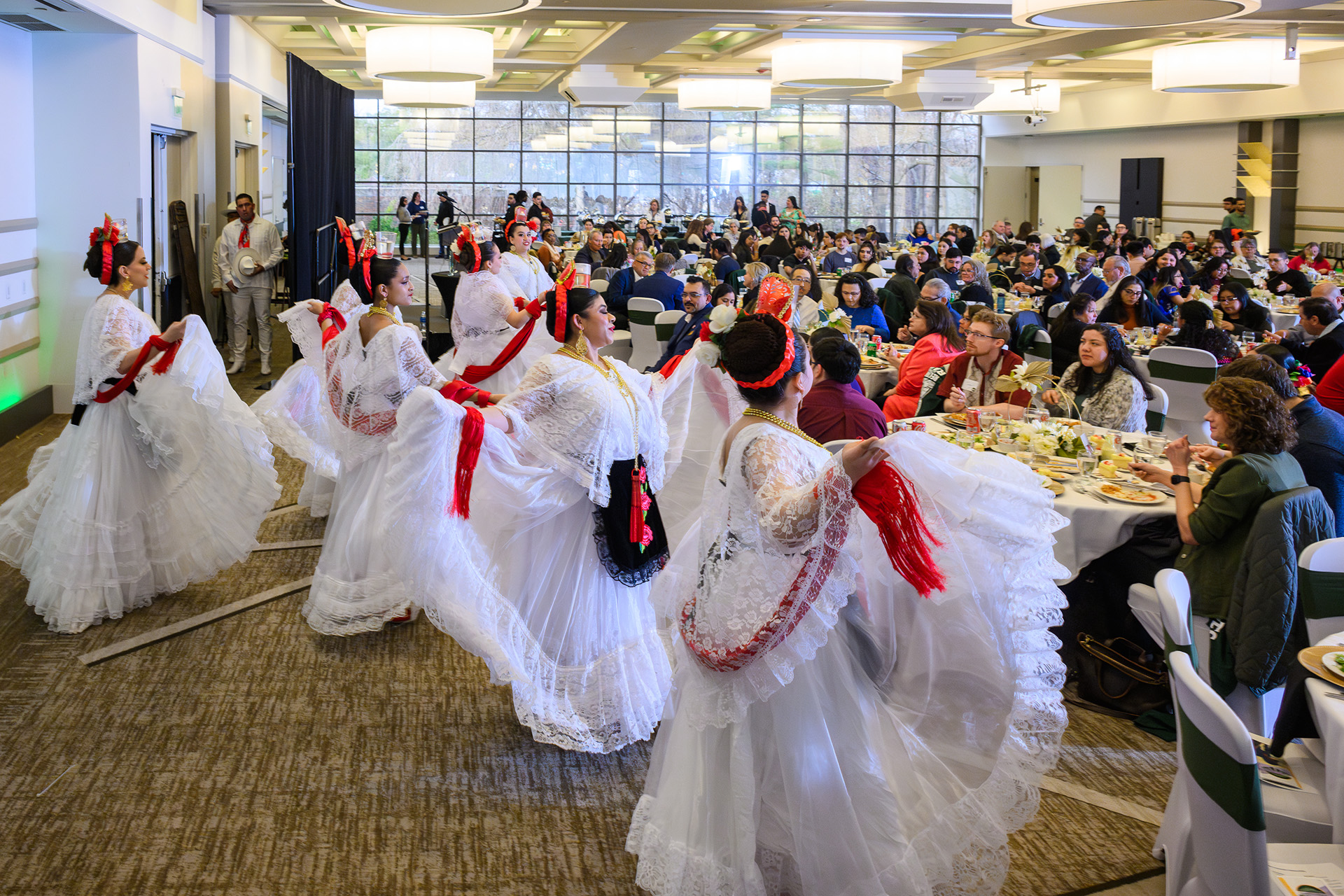
A host of performers brought excitement to the celebration, with dancers from Joyas de Mexico and Ballet Folklórico de Wayne State University bringing bursts of energy with colorful dresses swirling in high circles, intricate footwork and numerous costume changes. Mariachi Son de Mexico elevated the connection and energy throughout the room with rousing mariachi music.

“‘Harvesting Our Dreams’ — I love that theme and the purpose in selecting this theme,” said MSU President Kevin M. Guskiewicz. “It brings to mind our university’s land-grant legacy, something that we are very proud of here at Michigan State University, of making advanced education available to a broad public. There’s no higher calling than opening the door of opportunity and preparing the next generation of leaders to not only solve the grand challenges of today, but to identify the grand challenges of tomorrow.”
For Ramírez, a dream started her career in fighting for gender equity and civil rights for farmworkers. As a young girl, she dreamt of attending college, but her counselor didn’t think it was for her. Then she wanted to become a lawyer, but a college advisor didn’t think law school was for her. If it wasn’t for the passion and support from her family and her work to fight against the shackles of low expectations, Ramírez may have never recognized her dream.
She implored the students, young people and other Latinx community members to follow their dreams too.
“Dreaming is not only for the privileged — dreams are free and they belong to all of us,” she said. “In the day to day, as we work and we work to put food on our tables, to pay the rent, to pay tuition, to handle the things that are necessary, oftentimes what happens in that daily struggle is we put aside the desire and the opportunity to dream because sometimes we feel like dreaming costs too much and that dreaming is not for all of us. Every single person in this room is here because they want you to dream and they want you to thrive and they understand that the problems of this nation will be saved by the people in these seats. You will solve the problems that no one has solved before if you allow yourself to dream.”
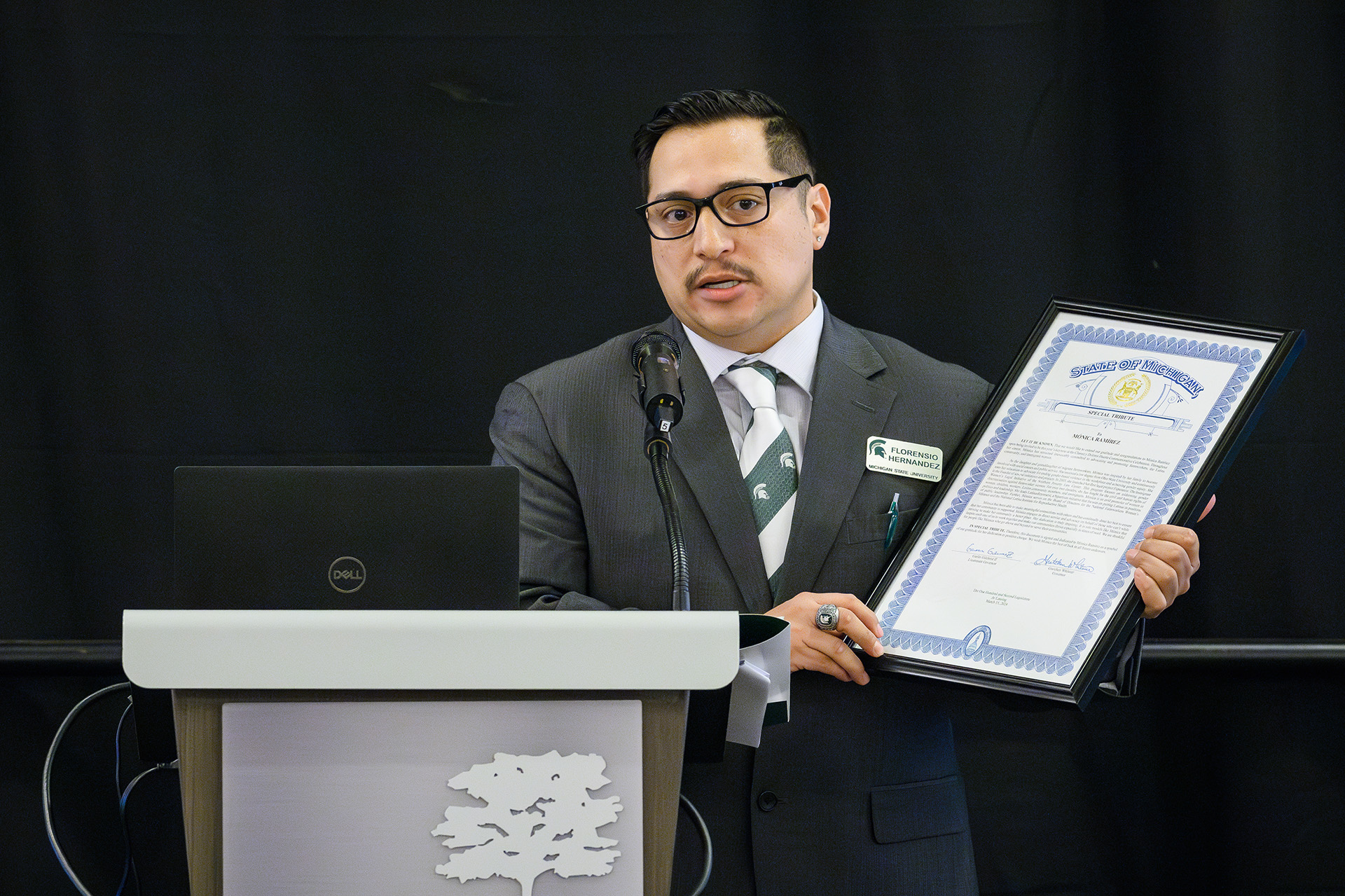
Florensio Hernandez, executive board treasurer of the Hispanic/Latino Commission of Michigan and the MSU Office of Admissions assistant director for diversity, equity and inclusion, presented Ramírez with a state of Michigan Special Tribute. The tribute recognizes her commitment to advocating and promoting farmworkers, the Latinx community and immigrant women. The tribute serves as a symbol of gratitude from the state of Michigan and was signed by Gov. Gretchen Whitmer and Lt. Gov. Garlin Gilchrist II.
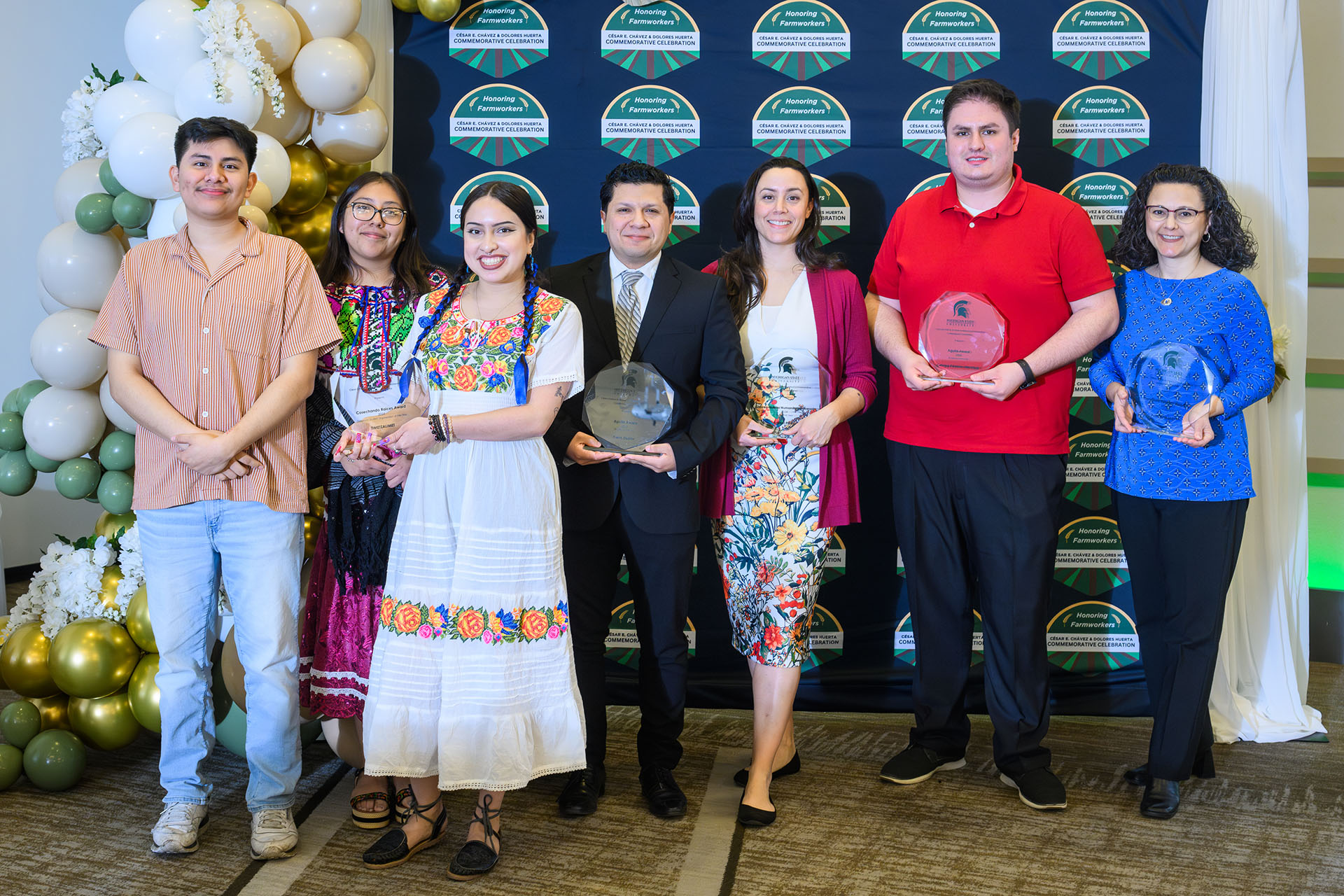
The celebration also featured an awards ceremony to honor MSU Latinx community members and leaders. Several awards were presented to MSU students, faculty and staff, including:
- Patricia Marin, who was honored with the MSU Faculty of the Year, or Plantando Semillas, Award
- Rachel Perez, who was honored with the MSU Staff of the Year, or Chávez Humanitarian, Award
- TIMETZALIMET, which was honored as the MSU Latinx Grassroots Student Organization of the Year with the Cosechando Raices Award
- George Ramirez-Madrigal and Frank Duarte, who were honored as MSU Students of the Year with the Aguila Award
Learn more about the awards and awardees.